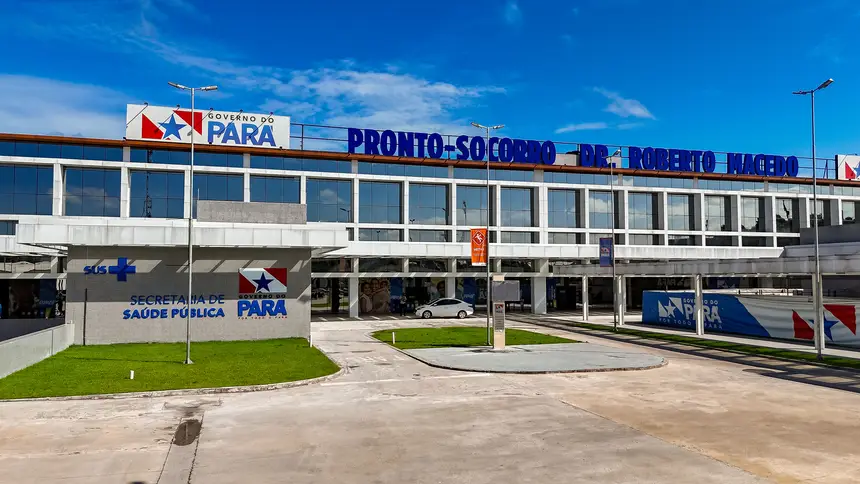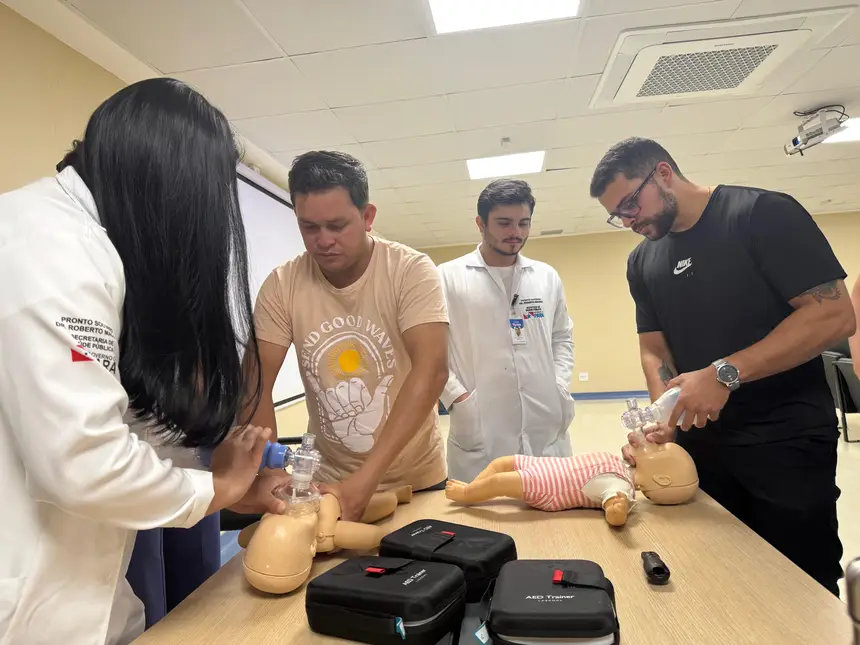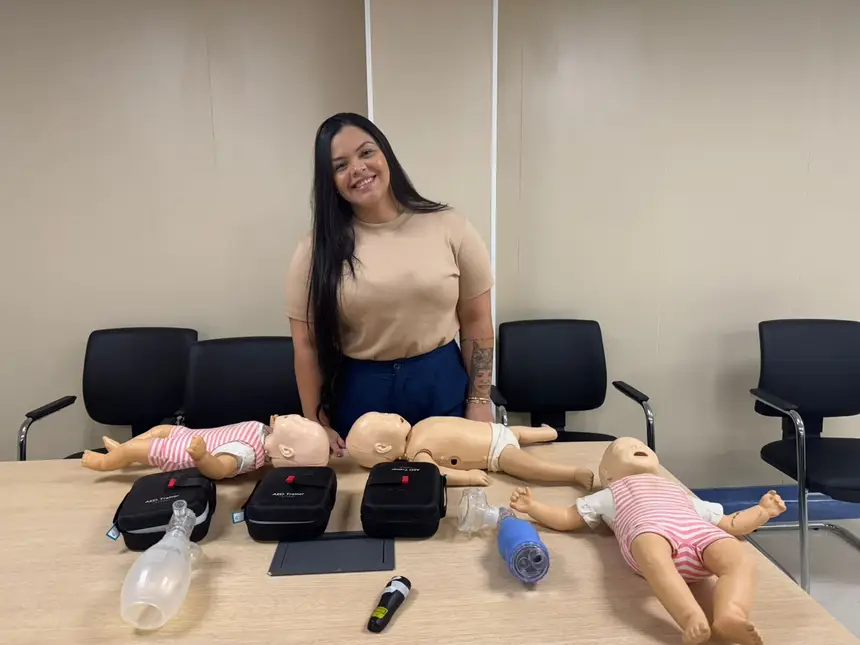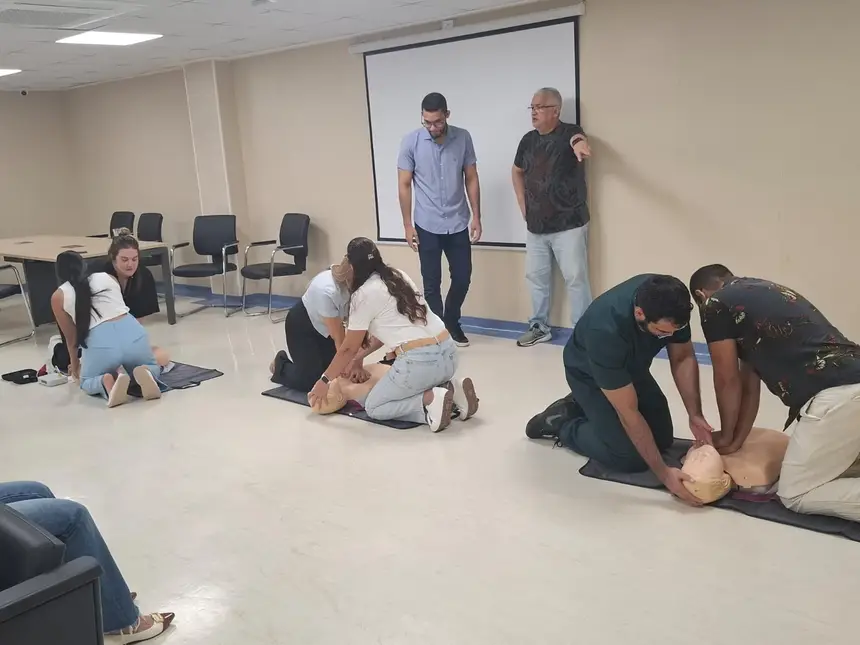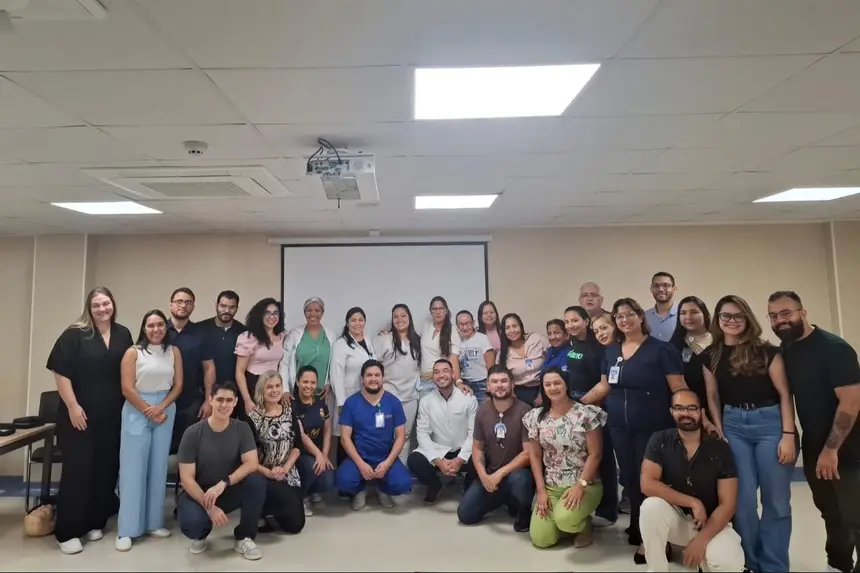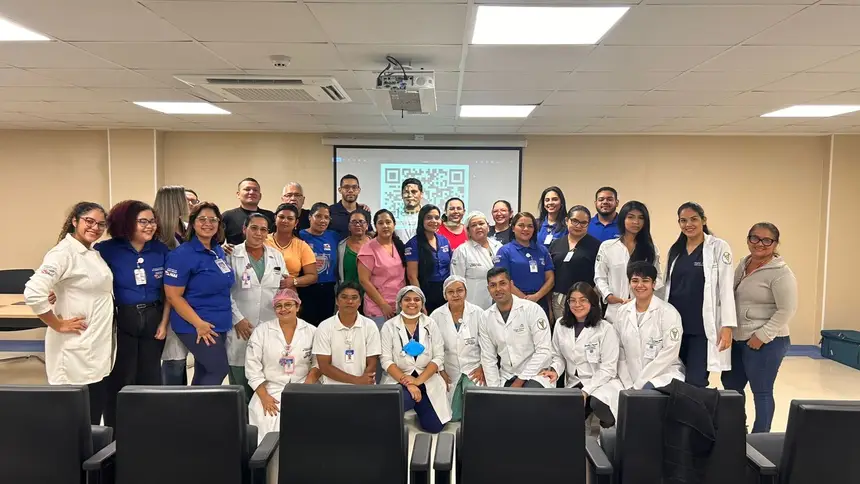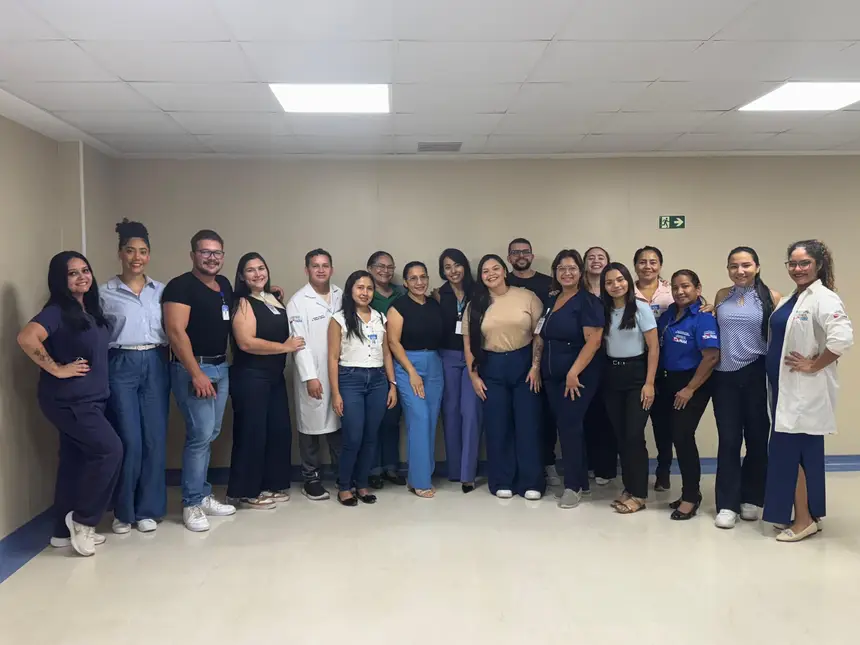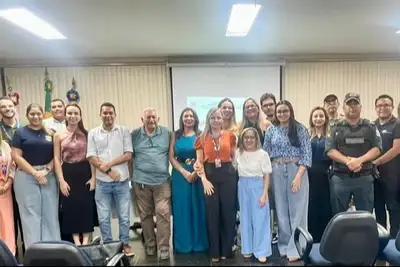State Emergency Room enhances urgent and emergency care for the population
Training completed this Saturday (23) qualifies the performance of professionals at the Dr. Roberto Macedo Emergency Room (PSRM) with a training cycle
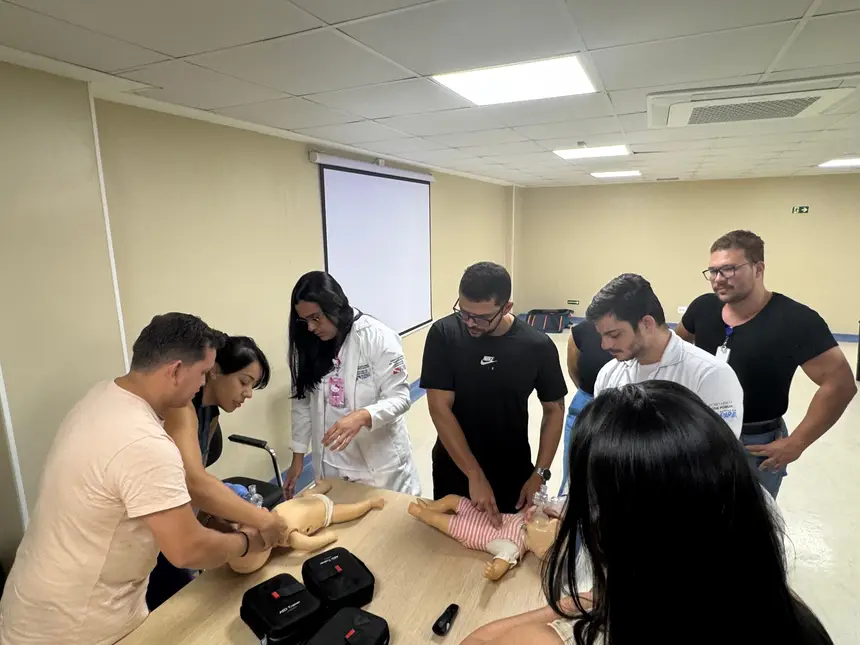
About 100 professionals from the Dr. Roberto Macedo Emergency Room (PSRM) participated in the training cycle on Basic and Advanced Life Support - Adult and Pediatric on Friday and this Saturday (23). The initiative, conducted by the Permanent Education Center (NEP), aims to contribute to the continuous improvement of urgent and emergency care offered at the health unit to the population of Belém and the metropolitan region.
The supervisor of the Permanent Education Center (NEP), Ádria Vanessa da Silva, states that "the techniques covered in the Basic and Advanced Life Support training, when practiced beforehand and correctly, can save lives and prevent brain damage in victims of cardiac or respiratory arrest, increasing the chances of patient survival and reducing the risk of long-term complications. That is why continuing education in health is so important," informs the nurse.
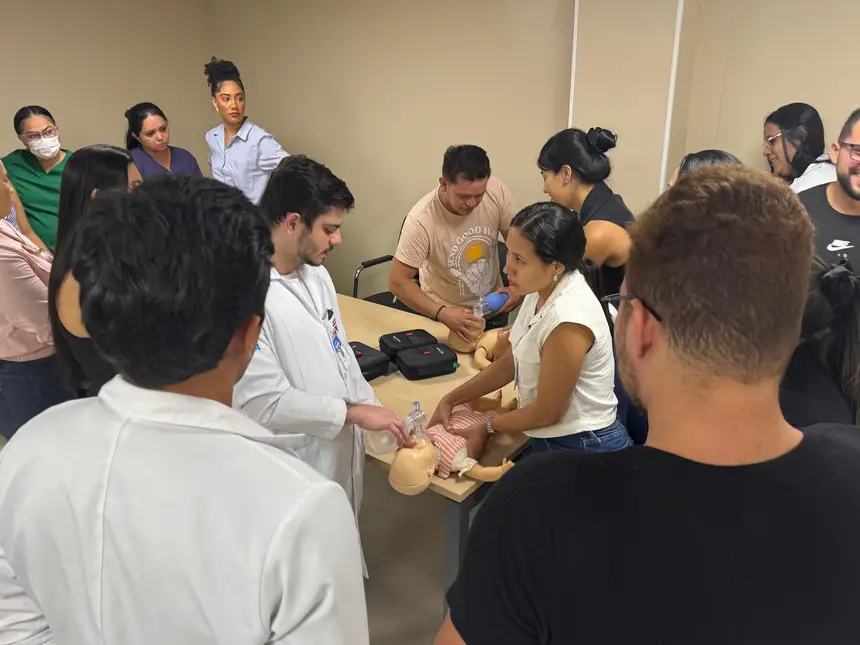
Aldenira Campos, companion of Adriel Campos from Outeiro, approved the hospital's initiative to continuously train its teams that work directly and indirectly in urgent and emergency care. "It's good to know that professionals are always being prepared to assist us; this makes us more confident in the care. My son is being treated right now, and I am here waiting, and I know I can trust the hospital team," she said.
Chances of survival
Juliana Reis, a pediatric resident physician and training facilitator, highlighted the importance of training, exemplifying with situations that are part of the daily life of a pediatric emergency.
"For every minute a child is in a cardiological emergency with a cardiorespiratory arrest, they lose 10% of their chance of survival if not resuscitated. And when resuscitated, if not done properly, this rate remains.
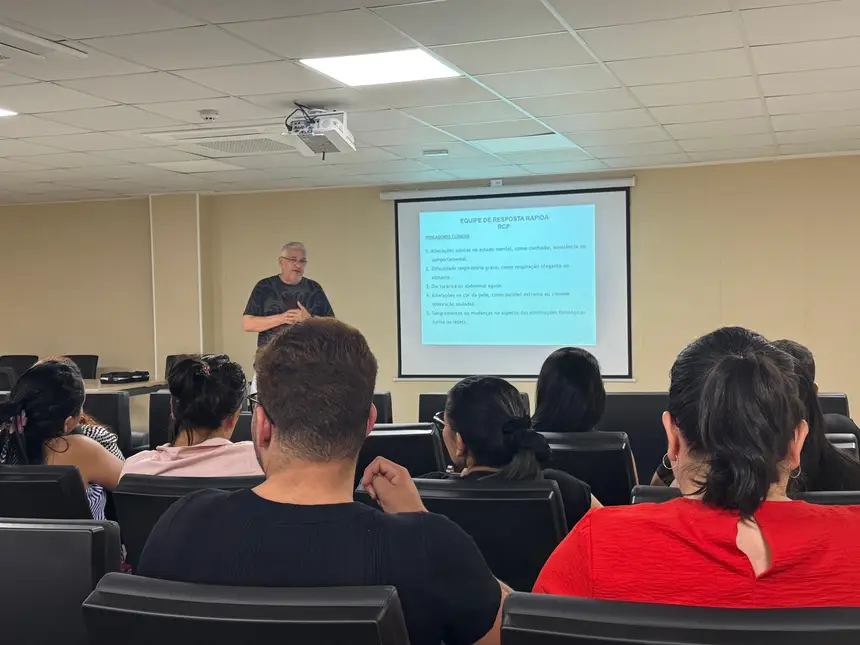
"The situation mentioned, like many others with practical training covered during these two days, was just to exemplify how essential it is for professionals working in urgent and emergency units to be prepared to initiate a quick and assertive approach, as in this case, where the professional will have to act in the first 10 seconds of the patient's clinical deterioration, as this will impact the survival rate and the success rate of the patient's treatment," informs the doctor.
Advanced Life Support
According to Santiago Servim, a general surgeon and facilitator of the Advanced Life Support training, the set of protocols and skills that go beyond Basic Life Support focuses on saving lives through more sophisticated medical interventions in emergency situations, such as Cardiac Arrest (CA). "The training covered invasive procedures such as defibrillation, venous access, and medication administration, advanced airway devices, and continuous monitoring for healthcare professionals working in emergency environments.
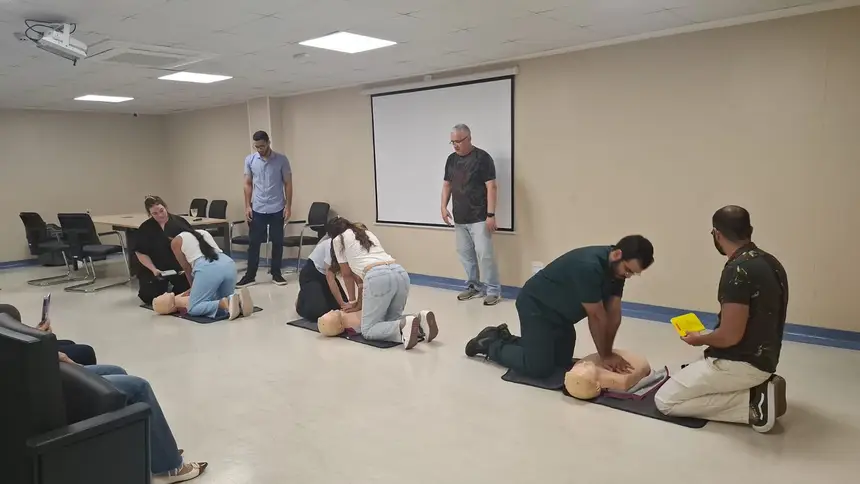
Direct and Indirect Assistance
"I was able to gain a lot of knowledge from the training, which was super important, as what was covered is part of our daily routine. What I learned will contribute to providing even more qualified assistance," pointed out nurse Leiciane Soares.
According to the general director, Carlos Vinicius Ribeiro Quadros, the training in Basic and Advanced Life Support is essential not only for professionals who work directly with health assistance but also for those who work indirectly.
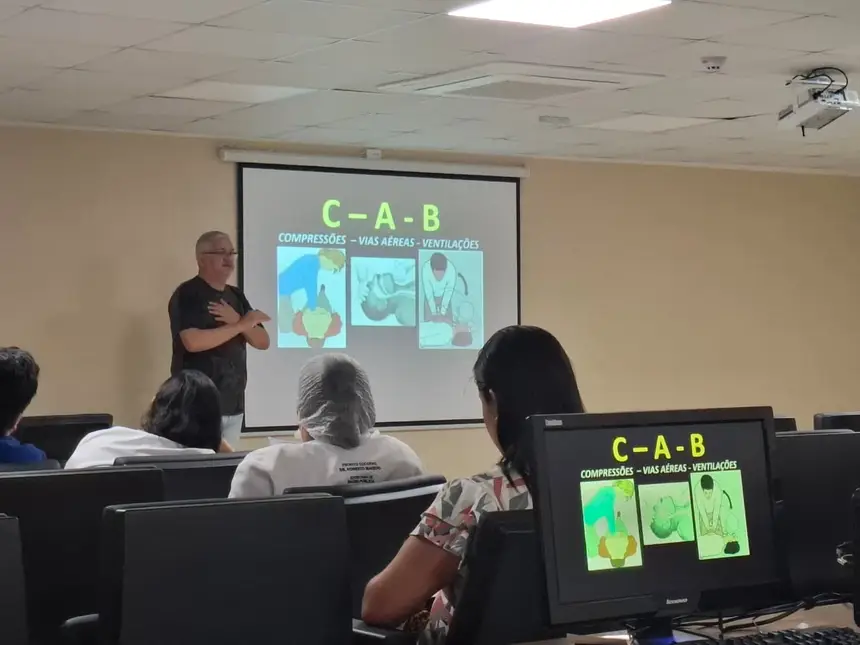
"In addition to the training being essential for professionals who work directly with urgent and emergency assistance, it was also important for receptionists, orderlies, and porters, who may encounter situations at any moment that will require some knowledge from them, which they will have to put into practice quickly and effectively to maintain life," highlights the manager.
Service:
The PSRM has 119 beds, distributed among adult and pediatric emergency care sectors, hospitalization, and Intensive Care Units (ICUs). The unit also has six fully equipped surgical rooms, capable of performing medium and high complexity procedures, including minimally invasive video surgeries that accelerate patient recovery time.
Managed by the Acqua Institute, in partnership with the State Department of Public Health (Sespa), the hospital is one of the pillars of the restructuring of public health promoted by the Government of Pará.


